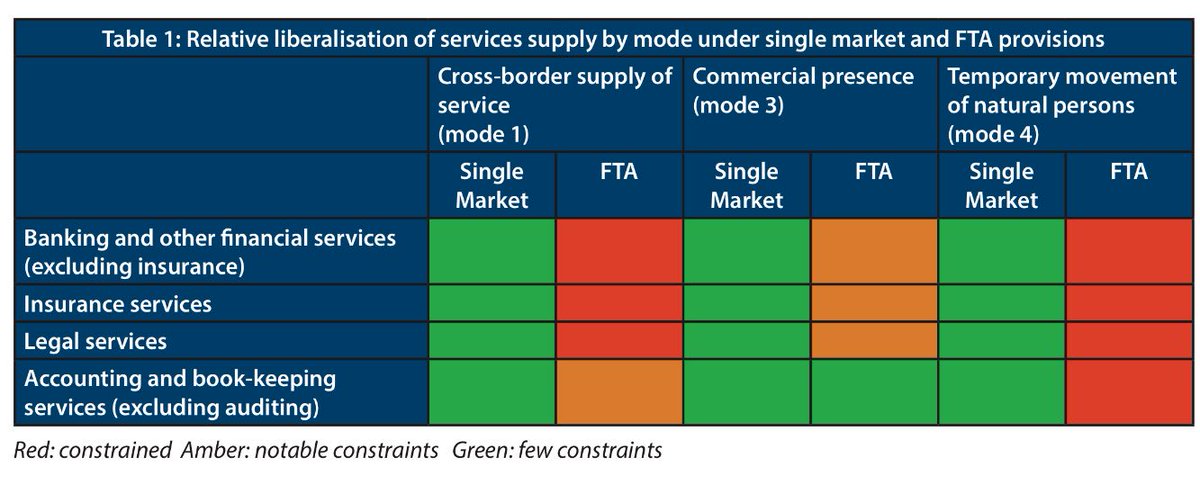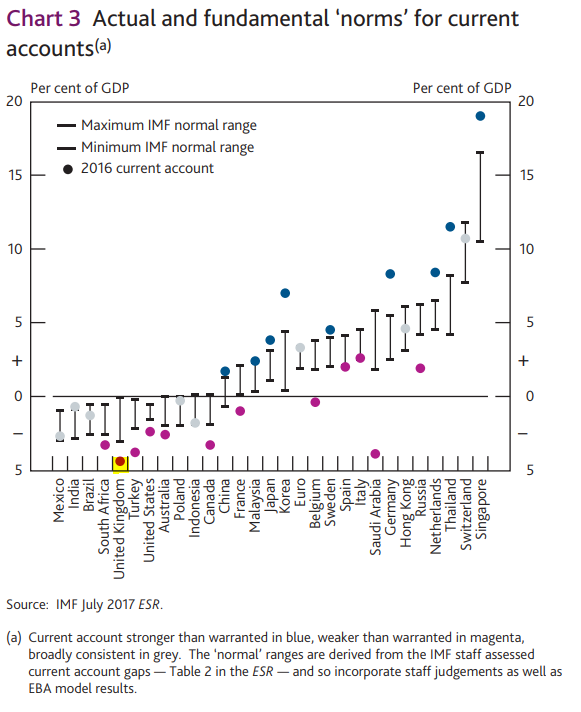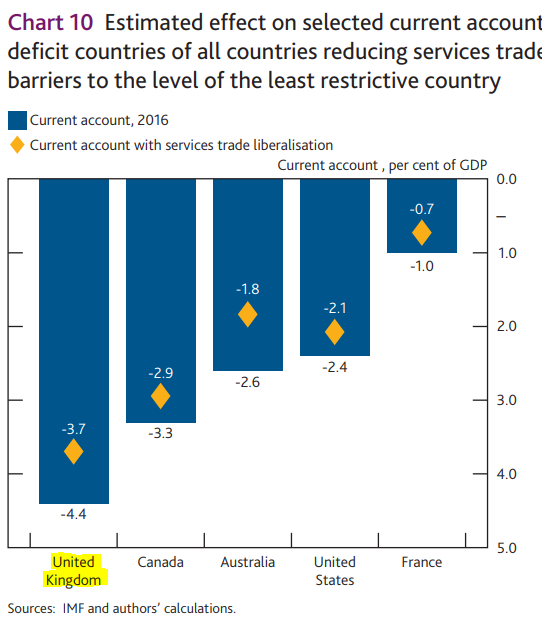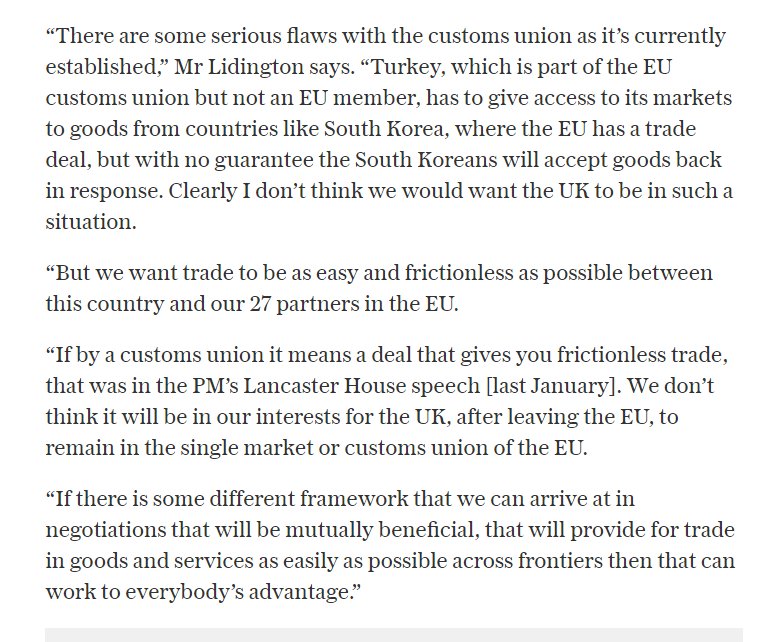I explore just how much can be done on services if the UK is to leave the single market and take a stab at estimating the impact on different sectors.
cer.eu/publications/a…
Business services would be less affected because of the nature of the industry itself where even within the EU British-based companies have already set up offices across the EU to service their clients.
Leaving the single market will probably lead to a shift in services investment out of the UK and into the EU-27. This will have have knock on implications for the UK’s trade balance, jobs and tax revenue.
It’s a bit nerdy, but hopefully it is accessible enough to be useful to those wanting to learn more about services trade (and why liberalising it is so difficult).
cer.eu/sites/default/…














